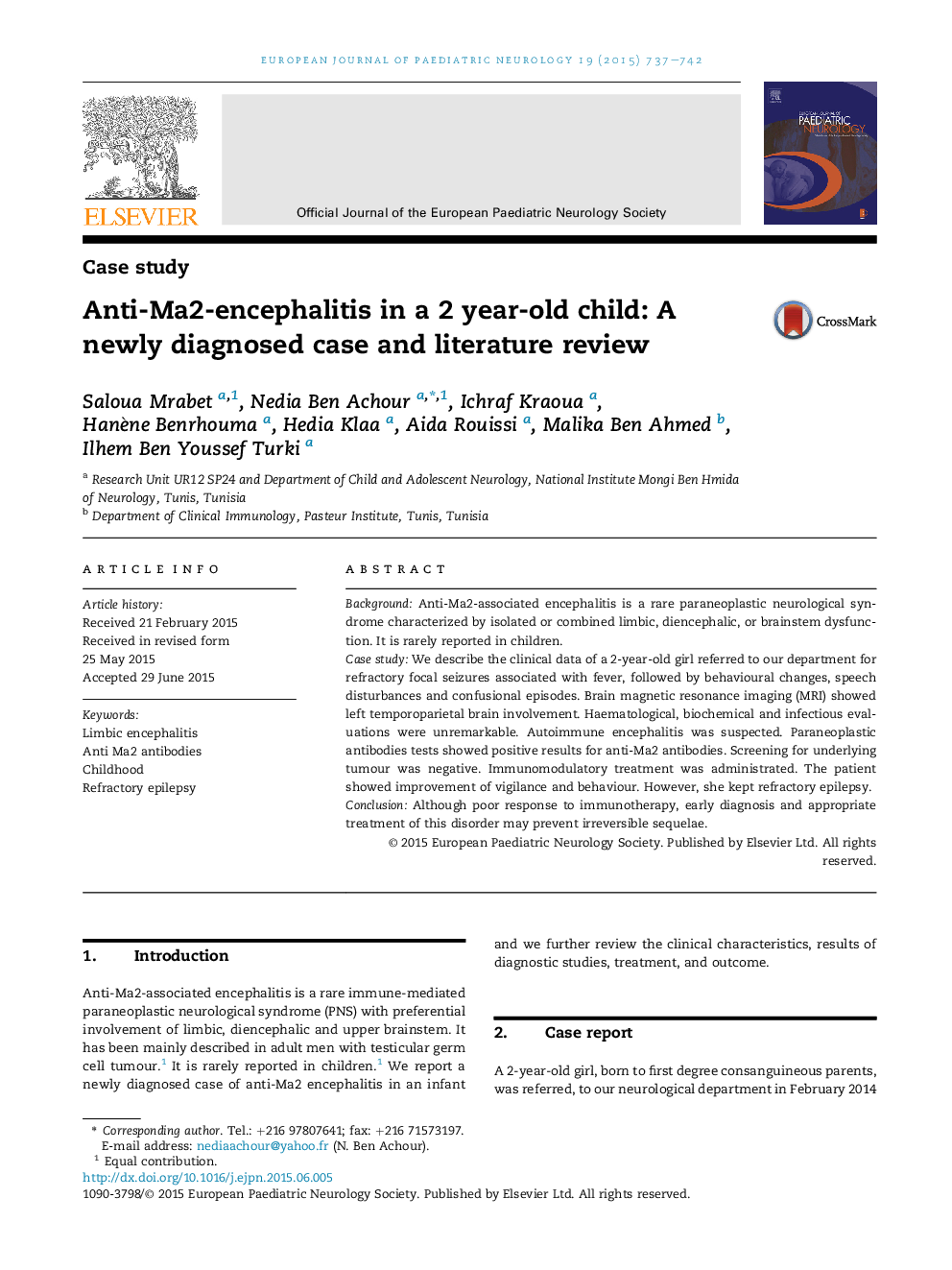| Article ID | Journal | Published Year | Pages | File Type |
|---|---|---|---|---|
| 3053610 | European Journal of Paediatric Neurology | 2015 | 6 Pages |
•Anti-Ma2 encephalitis is a rare immune-mediated paraneoplastic neurological syndrome and it is rarely reported in children.•Our patient seems to be the youngest case reported in the literature.•Refractory febrile status epilepticus with unproven infectious encephalitis should lead to anti-Ma2 antibodies screening.•Given the neurodegeneration mediated by T cell cytotoxicity, anti-Ma2 encephalitis is poorly responsive to immunotherapy.
BackgroundAnti-Ma2-associated encephalitis is a rare paraneoplastic neurological syndrome characterized by isolated or combined limbic, diencephalic, or brainstem dysfunction. It is rarely reported in children.Case studyWe describe the clinical data of a 2-year-old girl referred to our department for refractory focal seizures associated with fever, followed by behavioural changes, speech disturbances and confusional episodes. Brain magnetic resonance imaging (MRI) showed left temporoparietal brain involvement. Haematological, biochemical and infectious evaluations were unremarkable. Autoimmune encephalitis was suspected. Paraneoplastic antibodies tests showed positive results for anti-Ma2 antibodies. Screening for underlying tumour was negative. Immunomodulatory treatment was administrated. The patient showed improvement of vigilance and behaviour. However, she kept refractory epilepsy.ConclusionAlthough poor response to immunotherapy, early diagnosis and appropriate treatment of this disorder may prevent irreversible sequelae.
